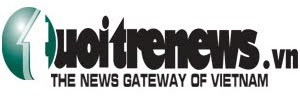 |
Pieces of elephant tusk and other ivory products are displayed for public sale at shops in Ho Chi Minh CityPhoto: Tuoi Tre |
TUOITRE
Though the recent unexplained death of a tame elephant in Da Lat has caused fury and heated public debate, the government has not been able to eliminate the illegal ivory market in Ho Chi Minh City.
Many traders openly sell ivory products procured mainly from the Central Highlands provinces.
Items made from ivory -- from pricey carvings of religious deities to cheaper bangles, belt buckles, and knife handles – are available in their thousands.
Ha, a big cheese in the trade based in HCMC’s district 6, toldTuoi Tre correspondents who pretended to be ivory buyers: “I have a pair of white tusks weighing 2.6 kilos sawn off from a domesticated elephant in Dak Lak province. It costs VND40 million (US$2,000) per kilogram and no haggling.”
After a few meetings, Ha agreed to let Tuoi Tre see the tusks. He took an 80cm-long tusk from a black bag and said: “It has been in stock since last year and it is very difficult to find a tusk of its kind in the Central Highlands these days.”
Tuoi Tre also called Ngoc Viet, who has traded in ivory products for the past 20 years from his house in district 11.
After an inquisitive look, he brought in some carvings of religious deities. One measuring 5cm high and 3cm wide cost VND2 million while the bigger ones were VND3 million to 5 million.
After negotiations, Viet began to bring out some of his fancier items from secret places around the house.
There was a 15cm idol of the Goddess of Mercy that weighed around a half kilogram.
Linh, his wife, brought a statue of the Buddha sitting under the Bodhi tree that was 15cm tall and 10cm wide. It also had sophisticated carvings on it.
She said it was made from a large tusk, adding she had refused to sell it for US$5,000.
At a shop on National Highway 1A in district 12, Hieu tried to convince customers to buy his products by producing a catalogue of body parts from rare and endangered wild animals, including stag and deer horns, tiger skins, and even a pair of wild-elephant tusks.
“If you need tusks or any other products made from rare wild animals, please contact me,” he told Tuoi Tre.
“I can provide them at a reasonable price and my products are 100 percent genuine.”
After seeing an online advertisement saying “Elephant tusks for sale …,” Tuoi Tre met Tuan at a coffee shop on Phan Xich Long street in Binh Thanh district.
He introduced himself as a member of a nationwide ivory selling gang and said he could provide a large quantity of ivory.
He showed Tuoi Tre a pair of African-elephant tusks that were 1.2m long and weighed 30 kilos. They cost VND1.2 billion and came with “legal documents.” Of course, selling tusks and ivory products is illegal in Vietnam.
He claimed the African tusks were imported by sea once a month.
Tuan picked up his cell phone and called somebody in Da Nang to ask for ivory products. He continued to call others in Nghe An, Buon Me Thuot, and HCMC to ask for more goods.
He told Tuoi Tre he would send some photos by email the same night for selection.
He did send dozens of photos of tusks along with their prices and origins.
In an antiques shop on Minh Phung street in district 6, the owner Hai also sells elephant ivory, bones, and even teeth.
He recommended a fossil tusk more than 60cm long and 8cm across that he claimed used to be on display in a museum.
He also showed Tuoi Tre an elephant tooth weighing more than 5 kg and costing VND6 million and an antique, ivory chessboard costing VND6 million.

Không có nhận xét nào:
Đăng nhận xét